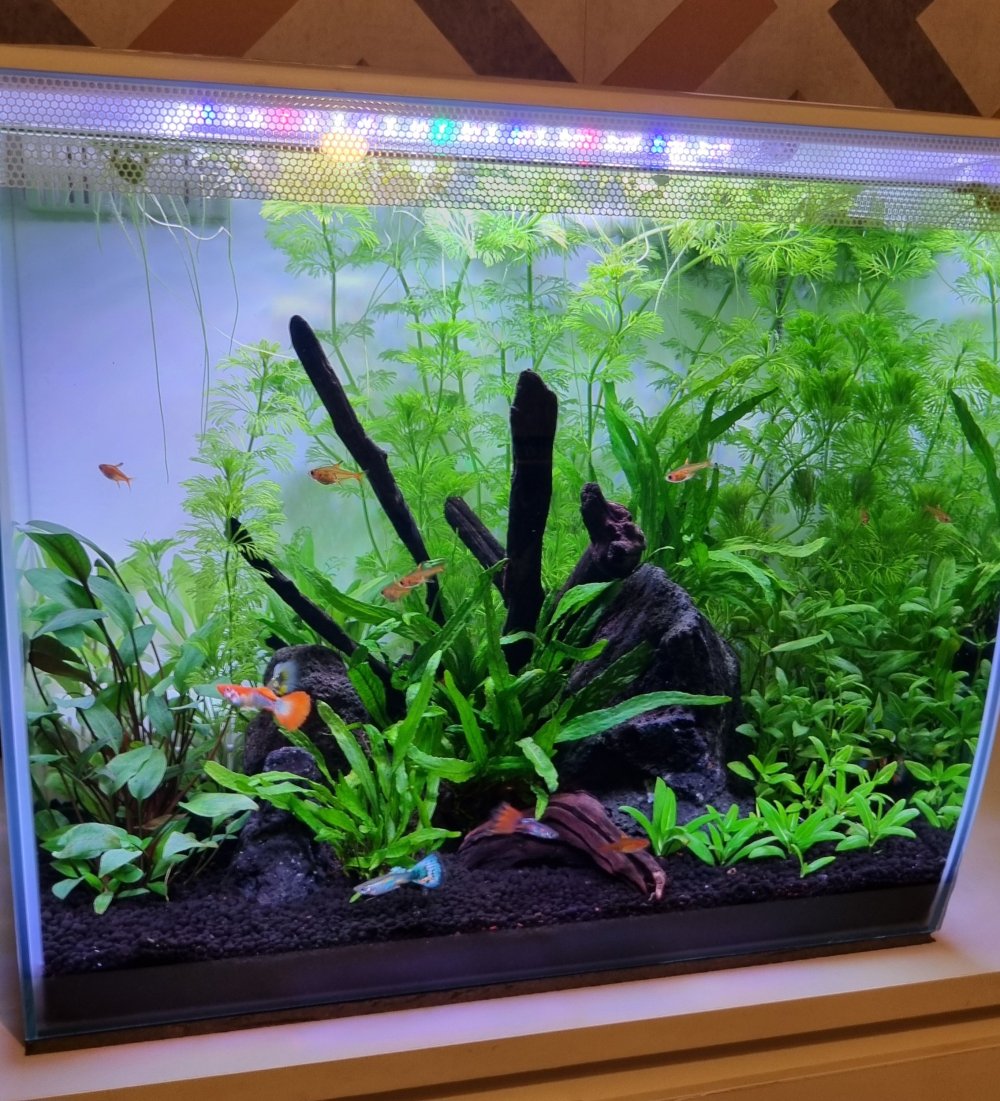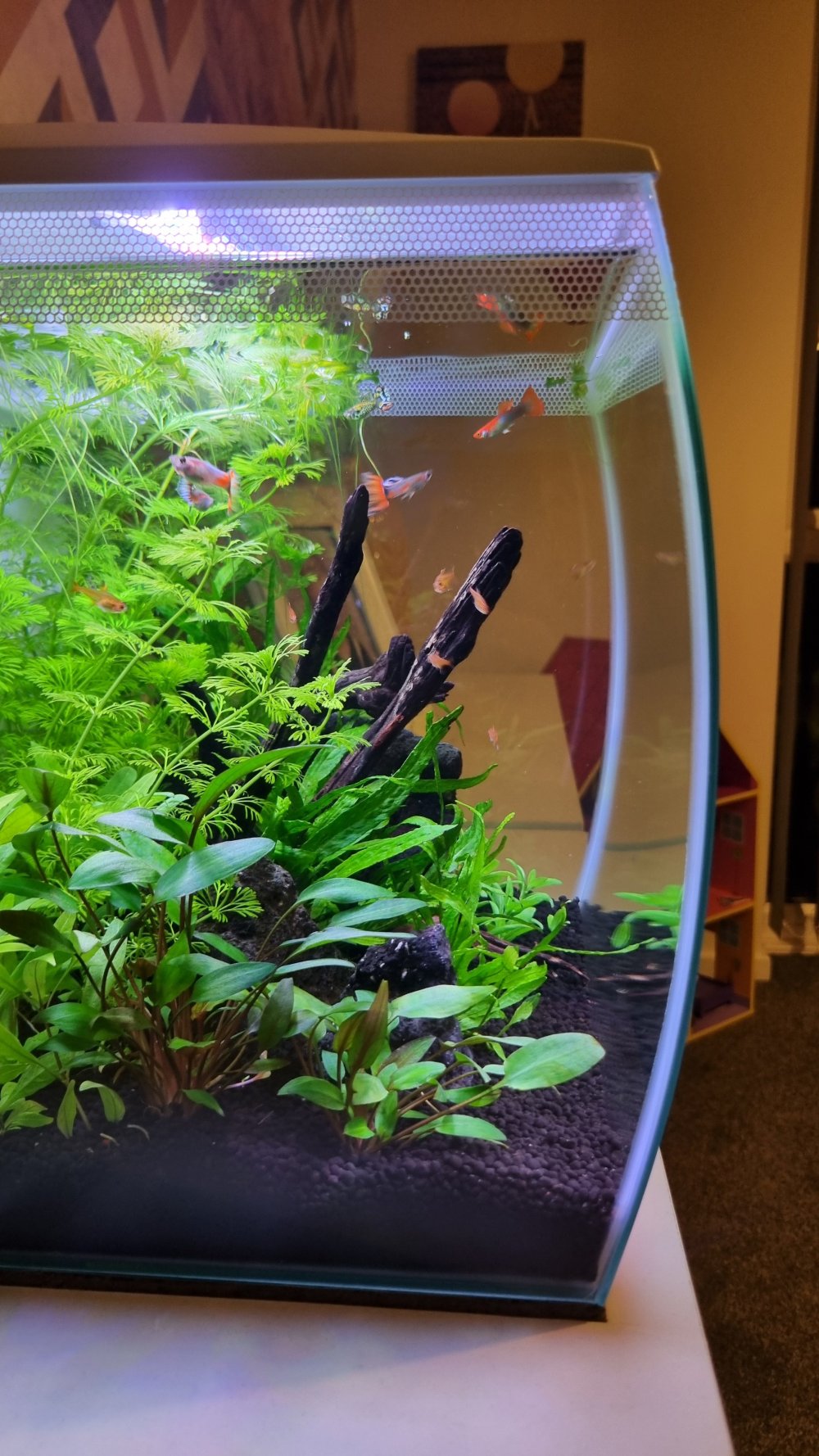Thanks darrel I’ll definitely have a good read on those links you’ve shared. Funny you should mention about the frogbit, because for the last couple of weeks, it’s changed? The roots weren’t growing and i had what looked like diatoms showing agin on what little roots there were. In the last few days, they have been coming back to looking good again.
Yeah me and the wife are very happy with the progress, I’m sure I’ll get better at it with time.
Thanks
James
Yeah me and the wife are very happy with the progress, I’m sure I’ll get better at it with time.
Thanks
James




